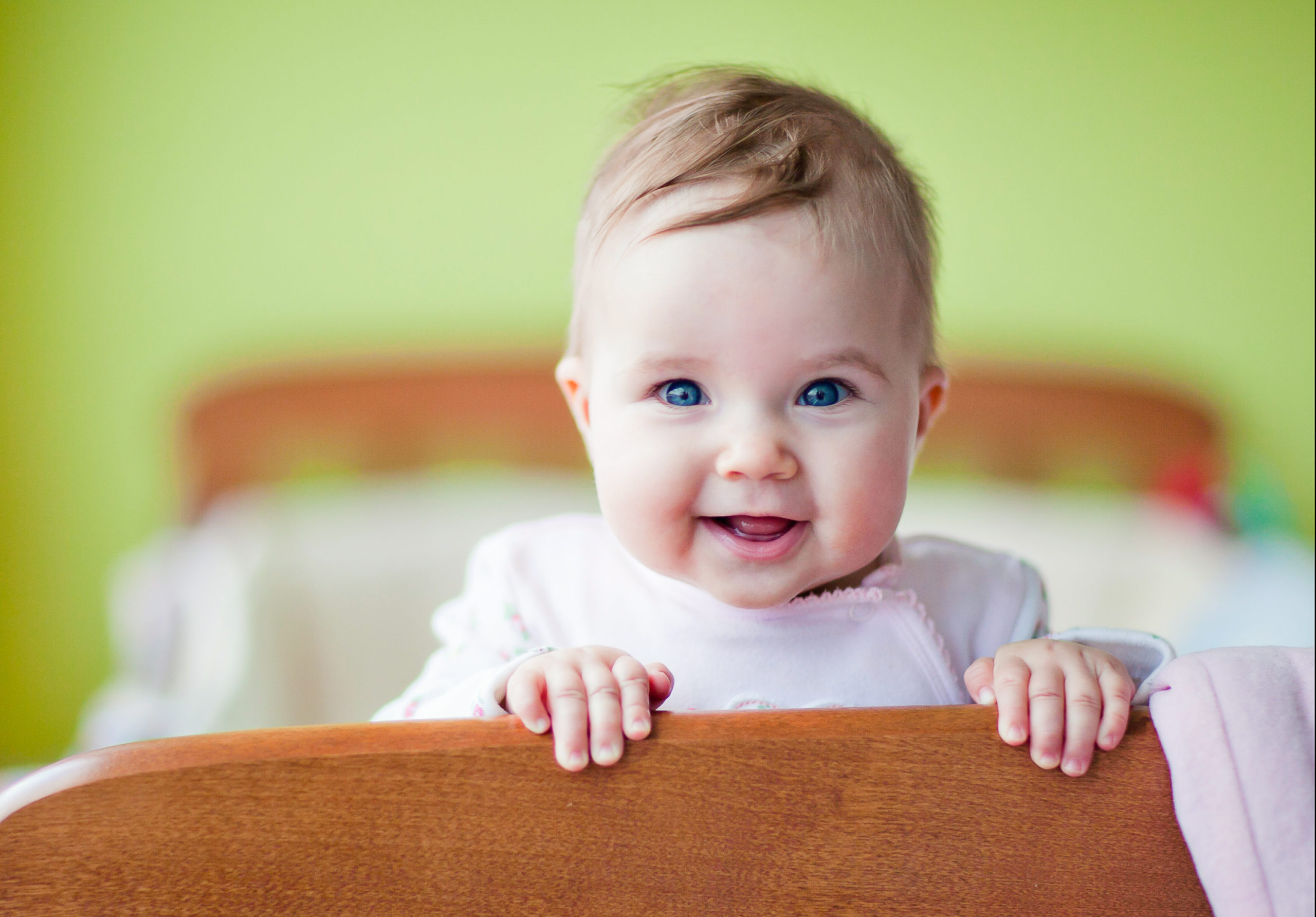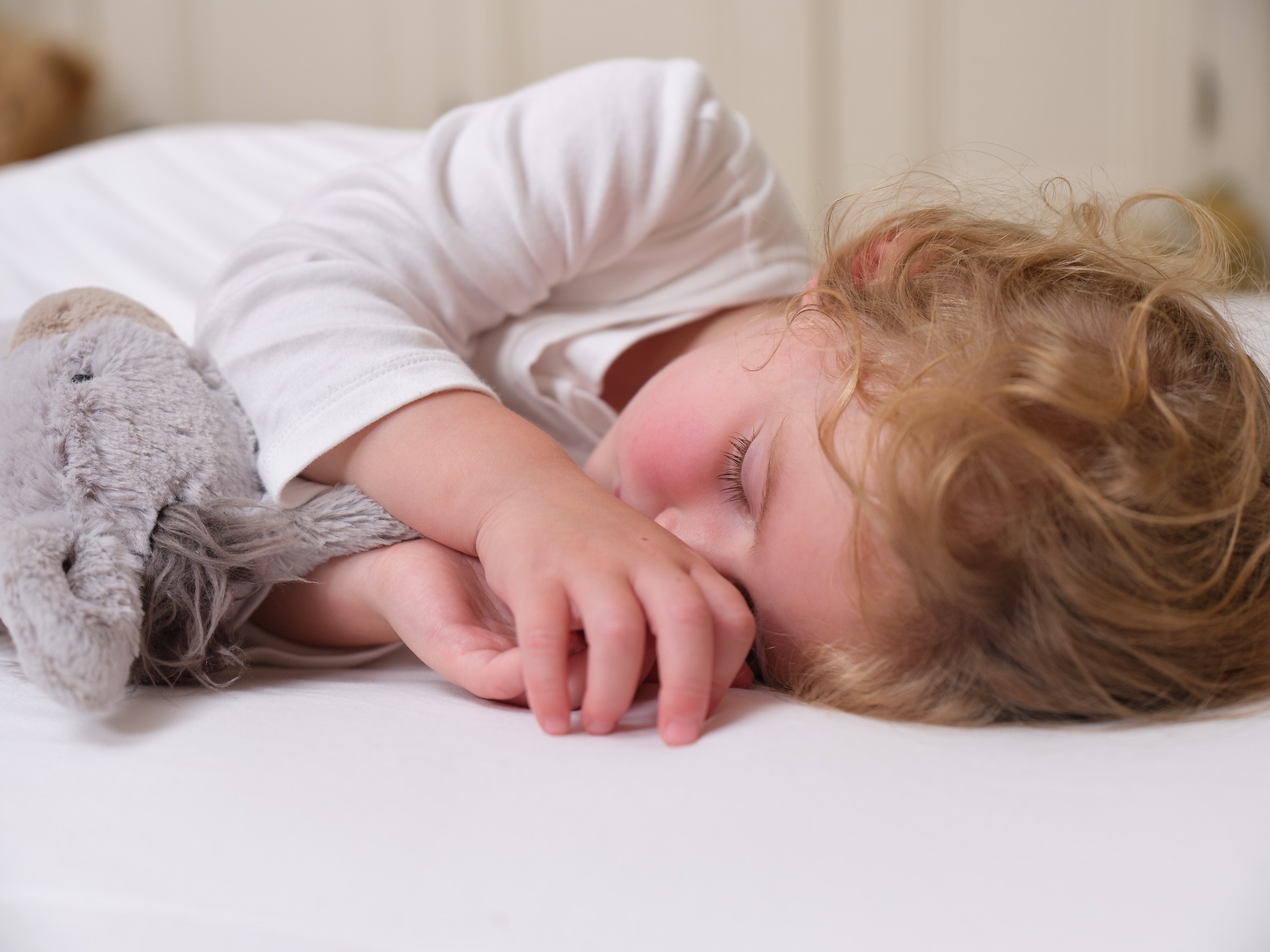
GET STARTED WITH A FREE CUSTOM SCHEDULE AND PLAN OVERVIEW ON OUR MOBILE APP →
TRY BATELLE FOR FREE →

“Parents know exactly what to expect from their sleep-deprived toddler: a cranky, moody little person with even less control over their emotions.”
It’s happened to every parent. The postal worker rang the doorbell, the neighbor dog started barking furiously at said postal worker, you forgot to silence your phone, or [insert any loud afternoon nap interrupter here] and your toddler woke up screaming 15 minutes into their nap. Most experienced parents know exactly what to expect from their toddler for the rest of the day: a cranky, moody little person with even less control over their emotions.
It turns out sleep deprivation in kids works in a similar way in the long term, too, and can actually impact their overall mental health. In fact, kids that don’t get enough sleep or have significantly disrupted sleep have higher incidences of depression, anxiety and aggressive behavior not just as a child, but also as an adult.
“Kids that don’t get enough sleep have higher incidences of depression, anxiety and aggressive behavior as adults.”
Recommendations for average sleep duration in infants is 12 to15 hours per night, 11 to 14 hours per night for toddlers, 11 to 13 hours for preschoolers, and 10 to 11 hours per night for school-age children. While some families may find adequate time for sleep when their children are younger, many struggle with adequate sleep once kids start extra-curricular activities. And given the recent strains put on families during the COVID pandemic, many parents have relaxed (and continue to relax) screen-time limits to cope with the demands of working from home and decreased socialization.
Research studies have shown us, however, that our kids are especially sensitive to lack of sleep and sleep disruptions because of the neurocognitive development that occurs at younger ages when both sleep and emotion-regulating systems are developing. Remarkably, the National Sleep Foundation estimates that nearly 30 percent of children do not sleep enough.
“Clinicians can have a difficult time determining whether a child’s symptoms are due to ADHD or chronic sleep deprivation.”
Importantly, not all children act the same way when they’re sleep deprived: while some parents expect overtired children to be sluggish and sleepy, children are often hyperactive, impulsive and easily distracted when they aren’t getting enough sleep. In fact, clinicians can have a difficult time determining whether or not a child’s symptoms are due to ADHD or chronic sleep deprivation.
For kids that are already struggling with emotional problems, a lack of sleep is only going to make symptoms worse. In addition to aggravating symptoms, sleep deficits can also affect children’s emotional processes, such as the ability to identify other people’s emotions or nonverbal cues and the capacity to self-monitor. Sleep deprivation has additionally been shown to change how children react to their experiences. Research has shown that children with less sleep not only have more negative emotions, but also derive less pleasure from positive experiences and are less likely to remember details about their positive experiences.
“Sleep deficits can also affect children’s ability to identify other people’s emotions or nonverbal cues and their capacity to self-monitor.”
Lack of sleep in children is a problem, but luckily, it is a solvable problem. Electronic devices, in particular, have a negative effect on sleep, and sleep professionals typically recommend a minimum of one hour of screen-free time before bedtime to allow the mind to relax and unwind before bed. Improved sleep hygiene measures, such as going to bed at night and waking at the same time each day can be beneficial, and only allowing your child to use the bed for sleep can also prevent them from building associations between being in bed and being awake.
While bad sleep habits can be difficult to break and the amount of time and effort required may seem daunting, it’s truly your child’s mental health that is at stake. Thankfully, the benefit of your child’s restful sleep is far-reaching: long, uninterrupted sleep for your child can improve your chances of uninterrupted sleep as well. It turns out a well-rested child is not only a happier child, but also a happier adult.
